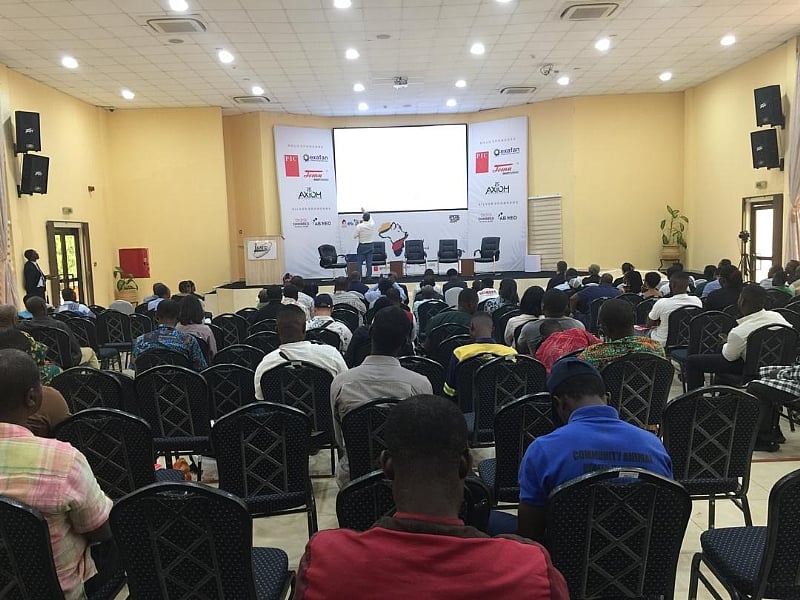The Africa Pig International Conference (APICON) 2024 commenced on October 11 in Accra, Ghana, under the theme “The Evolutionary Journey of Africa’s Pig Industry.” This two-day event saw the convergence of diverse stakeholders, farmers, and industry experts from both Africa and Europe, all keen to explore opportunities for growth and development within the pig sector. Organized cooperatively by Agrobreeders Nigeria, 333, Benaiah Inc. group, and the Pig Farmers Association of Ghana (PFAG), the conference aimed to enhance collaboration, foster knowledge sharing, and stimulate innovation among participants. Notably, PFAG President Kwame Appiah Danquah highlighted the importance of such gatherings for the industry, advocating for active engagement to facilitate discussion and networking among stakeholders.
During the conference, Javier Lorente, Technical Director of 333 Academy, presented compelling statistics on global pig and pork production that underscored Africa’s potential for growth. He noted that as of 2022, global pig meat production totalled 114 million metric tons, with Asia accounting for 55%, while Africa lagged at only 4%. This stark contrast illuminates the region’s significant prospects for expansion within the industry. Following this presentation, Olasupo Abayomi, Convener and Brand Manager of 333 Africa, provided historical context regarding pig production in Africa. He pointed out that the transatlantic slave trade significantly influenced the introduction of pigs to the continent, whose historical implications are critical for formulating future development strategies.
A lively panel discussion ensued, featuring experts such as Mr. Bright Manye, Deputy Director of Animal Production at the Ministry of Food and Agriculture (MOFA), Dr. Albert Schuttle from PIC-South Africa, Prof. Kingsley Adesehinwa, the President of the Pig Farmers Association of Nigeria (PFAN), and Tomi Olatunde, Africa Technical Manager of Choices/AXIOM. The panel engaged in a stimulating debate on how African culture and religion impact the pig industry. Professor Kingsley Adesehinwa articulated that accommodating cultural and religious sensitivities is essential for fostering inclusive and sustainable growth within the industry. The emphasis on cultural relevance resonated deeply with participants, sparking further discussions on expanding the pig sector in a considerate manner.
In addition to cultural discussions, the conference addressed various pertinent issues including the current state and prospects of Africa’s live pig and pork market, advancements in superior swine genetics, modern climate control systems, and the adoption of emerging technologies in swine farming. These topics emphasized the need for innovation and modernization within the sector, aiming at both efficiency and productivity to satisfy growing market demands. Participants showed great enthusiasm regarding the potential benefits of new technologies and practices, elucidating the importance of integrating such advancements in fostering a competitive edge for African pig farming.
Feedback from attendees has been overwhelmingly positive, with many expressing gratitude for the opportunity to convene and share insights. Some participants suggested that holding regular events like APICON 2024 could promote continuous learning and adaptation to market trends and technological advancements. One participant stated, “APICON 2024 has been an eye-opener. We need more platforms to share knowledge, address our challenges, and drive Africa’s pig industry forward.” This sentiment highlights the broader demand for ongoing dialogue and exchange of ideas within the industry, as stakeholders recognize the complexities and opportunities that lie ahead for pig farming in Africa.
The successful conclusion of the first day of APICON 2024 lays a solid foundation for ongoing collaboration and shared vision within Africa’s pig industry. As the conference continues, it stands as a beacon of hope for a revitalized sector poised for growth. The combination of valuable discussions, expert insights, and collaborative networking emphasizes that stakeholder engagement is vital for addressing the industry’s challenges and facilitating sustainable development strategies. With its focus on innovation, inclusivity, and historical context, APICON 2024 is forging a path toward a more prosperous future for the pig industry across Africa.


